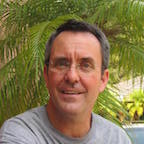It is nearing the time for the Society’s Biennial Conference and much exciting new work will be presented. One presentation that I would like to highlight in advance is a special one that will be given as a plenary talk. Students are the future of our Society and the advancement of marine mammal science and conservation. Our Society is fortunate to have a very strong and active student component. One of our founding members, the late F.G. Wood, was a strong proponent of the importance of students and an award was created in his honor for excellence in scholarship by students. This award is given for the best student paper published in the Society’s journal, Marine Mammal Science, during the two years between conferences. The recipient of the Award this year, is Dr. Trish Lavery of the Department of the Environment (Australia) for her paper entitled, Whales sustain fisheries: Blue whales stimulate primary production in the Southern Ocean. Please be sure to attend Trish’s presentation and to congratulate her on her excellent work.
Category Archives: Conference News
New and additional rooming options for the conference
As the conference hotel is now full, we have procured discounted rates at a neighboring hotel, Parc 55, located a block away from the conference hotel.
Secure a discounted reservation at the Parc55 hotel through the Society HERE
Want to share a room?
Go here to find someone to share a room with.
Need a less expensive housing option?
There are beds in shared dorms available (about 50 spaces left at this point). It is San Francisco City Center Hostel at 685 Ellis Street. Earliest check-in date is December 12 and latest check-out date is December 19 (nights of 12/12-18). Dorm beds are $40 per night.
Interested in booking a dorm bed at the hostel for this rate? Download this hostel form, fill it out and send it to Tenaya Norris at norrist@tmmc.org
Announcing the 2015 Society for Marine Mammalogy Conference Journalist Fellows
(Shared from the COMPASS blog post)
COMPASS is proud to support an impressive group of reporters, editors, and producers in attending the Society for Marine Mammalogy’s 21st Biennial Conference on the Biology of Marine Mammals: Bridging the Past Toward the Future this coming December. The meeting is expected to bring 2,500 marine mammal scientists and practitioners to San Francisco, CA, for workshops, plenaries, and presentations on topics of importance to marine mammalogy, ranging from climate and changing oceans to effective marine spatial planning. Browse the fellows’ websites for some powerful science and environmental reporting, and easily connect with them via our Twitter list here.
The journalist fellows will be woven into the conference in a variety of ways, to help them connect and interact with the marine mammal scientists and experts. The fellows will first be introduced at the “How to Make Your Science Matter” plenary panel, moderated by Nancy Baron, COMPASS Director of Science Outreach, and comprised of:
• Jane Lubchenco, U.S. Science Envoy for the Ocean
• Nick Gales, President of the Society for Marine Mammalogy
• Marcia McNutt, Editor-in-Chief, Science
• Charles Littnan, Lead Scientist, Hawaiian Monk Seal Research Project at NOAA Fisheries
• Ken Weiss, Independent Journalist, Pulitzer Center on Crisis Reporting
• David Malakoff, Deputy News Editor, Science Magazine
COMPASS will facilitate the fellows’ meeting and mingling with scientists at the reception after the plenary session.
On Tuesday, at a COMPASS media mixer, we will help the fellows broker connections to pursue their story ideas and arrange for “beat dinners” with experts on their topics of interest. The fellows are also invited to provide their perspectives on what makes a great story during our lunchtime communications workshop on Tuesday, “One Minute to Impress: How to Sell Your Science To Anyone.”
SMM 2015 COMPASS Journalist Fellows
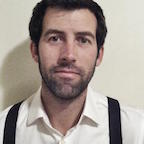 Matthew Berger
Matthew Berger
Freelance – @matthewoberger
Matthew Berger has covered science and environment issues for the past six years at a number of local, national and global outlets. He has also covered global development, global health and foreign policy extensively during his reporting career, based primarily out of Washington, D.C. He has been a staff reporter at Bloomberg, Agence France-Presse, Inside Climate, Inter Press Service, and the Grand Junction (Colo.) Sentinel and has contributed to Nautilus, IntraFish, Reuters, and a number of smaller outlets. Matthew focused on the political and economic questions of science and environment issues for most of his early career, particularly those related to the oceans, and holds a master’s in political economy from the London School of Economics, where he focused on fisheries policy, and a graduate certificate in marine resource management from Oregon State. He is currently based in Portland, where he is focusing on questions of environmental ethics and identity in his freelance reporting, including a number of marine mammal-related stories.
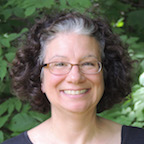 Madeline Bodin
Madeline Bodin
Freelance – @MadelineBodin
Madeline Bodin has been writing about conservation science for over 20 years for publications such as Yale Environment 360, Nature News, JSTOR Daily, Scientific American, Popular Mechanics, Discover, The Boston Globe, and Newsday. She lives with her family in Vermont. As a child, she treasured a bottlenose dolphin plush toy named Panama.
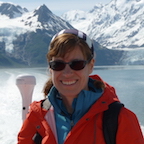 Lesley Evans Ogden
Lesley Evans Ogden
Freelance – @ljevanso
Lesley is a freelance science writer-producer based in Vancouver, Canada. After scaling the ivory tower, turning a lifelong fascination with birds into a PhD and postdoctoral research in ecology, she parachuted into the wilds of science journalism. During that career transformation she was educated and inspired at the Banff Science Communications Program and the Santa Fe Science Writers Workshop, and spent a year working for the Science Media Centre of Canada. Now a regular contributor at BBC Earth, Natural History, New Scientist and BioScience, her work has also appeared in venues including Mosaic, CBC, Science, and Nature. Lesley’s enthrallment with marine mammals was cemented over a decade ago by a close encounter with a pod of orca whales while kayaking through thick morning mist in Johnstone Strait, BC. When not working on her next story, Lesley enjoys trail running, hiking, cycling, canoeing, kayaking, and spending time with her family, preferably in the outdoors. She shares her workspace with a budgerigar poet.
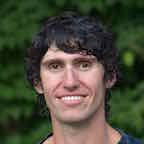 Ben Goldfarb
Ben Goldfarb
High Country News – @ben_a_goldfarb
Ben Goldfarb is a correspondent for High Country News, a magazine that covers natural resources throughout the American West. His freelance writing has appeared in Scientific American, Pacific Standard, Earth Island Journal, Hakai Magazine, and many other publications. In 2013 Ben received a Masters of Environmental Management from the Yale School of Forestry and Environmental Studies. Read his work at www.bengoldfarb.com.
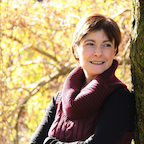 Isabelle Groc
Isabelle Groc
Freelance – @isabellegroc
Isabelle Groc is a Vancouver-based freelance writer and photographer, focusing on environmental science, wildlife natural history and conservation, endangered species, marine mammals and ecosystems. Her stories and photographs have appeared in National Geographic News, BBC Wildlife, Canadian Wildlife, New Scientist, and many other publications. She has a master’s degree from Columbia University Graduate School of Journalism and a Master in City Planning from the Massachusetts Institute of Technology. With her dual background in photojournalism and urban planning, Isabelle brings a unique perspective in documenting the impacts of human activities on threatened species and habitats. She is a fellow of the Explorers Club.
 Melati Kaye
Melati Kaye
Freelance – @tadipagi
Melati Kaye is an environmental journalist based in Southeast Asia. She has lived in and reported on fishing communities along the Pacific Rim on a range of subjects including cyanide fishing, sea gypsies and coral-stifling mine runoff. Her work can be found at Mongabay.com, Al Jazeera, Indonesia’s national newsweekly Tempo, and various American magazines.
Paul Kvinta writes about the environment, wildlife, and science for several magazines including Outside, Popular Science, and Men’s Journal. He has also written for the New York Times Magazine, National Geographic Adventure, GQ, National Geographic Traveler, and Fortune, and he has read his essays on National Public Radio’s Weekend All Things Considered. He has won a number of awards, including the Daniel Pearl Award, and has been a finalist for the National Magazine Award. In 2005 his story on human-elephant conflict in India, “Stomping Ground,” appeared in The Best American Magazine Writing. He has been a Knight Journalism Fellow at Stanford University, and a Templeton Journalism Fellow in Science and Religion at Cambridge University in England.
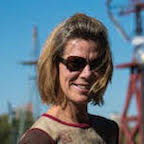 Susan Moran
Susan Moran
Freelance/KGNU – @susan_moran
Susan Moran is a freelance journalist living in Boulder, Colo. She writes about biodiversity conservation, energy, science, agriculture and other areas for Popular Science, Discover, the New York Times, The Economist, Science News for Students and other publications. She also contributes as a host and producer to KGNU community radio’s science show, “How On Earth.” Susan taught journalism as an adjunct instructor at the University of Colorado-Boulder for seven years. She was a Knight Science Journalism Fellow at MIT in 2009-1010, and a Ted Scripps Fellow in Environmental Journalist at the University of Colorado in 2001-2002.
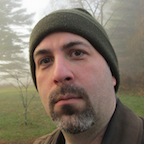 John Platt
John Platt
Freelance – @johnrplatt
Freelance journalist John R. Platt covers endangered species, wildlife trafficking and related environmental topics for Scientific American, TakePart, Vice, Mother Nature Network and other publications. His work earned the Animal Action Award from the International Fund for Animal Welfare in 2012 and was recently a finalist for the L.A. Press Club Awards. John lives in Portland, Oregon.
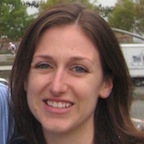 Elizabeth Preston
Elizabeth Preston
Freelance – @Inkfish
Elizabeth Preston is a freelance science writer and editor based in the Boston area. Her writing has appeared in Slate, the Boston Globe, Jezebel, Nautilus, Hakai, National Geographic, and others. Her science news blog, Inkfish, is published by Discover. Previously, Elizabeth was the editor of the children’s science magazine Muse.
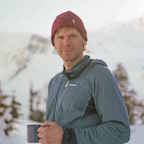 Christopher Solomon
Christopher Solomon
Freelance – @chrisasolomon
Christopher Solomon is a contributing editor at Outside and Runner’s World magazines and a frequent writer for the New York Times who has written for publications ranging from Popular Mechanics to Scientific American to the Times Sunday Magazine. He writes frequently about science, the environment and travel. His work has been featured in the anthology The Best American Sports Writing and twice in The Best American Travel Writing and been an Honorable Mention for The Best American Science & Nature Writing. He lives in Seattle.
 Michael Werner
Michael Werner
Werner Media – @mwerner1
Michael is an award-winning filmmaker and journalist. His work has been featured in / by: The PBS NewsHour, HBO Films, Showtime, The New York Times Company, QUEST, CBS This Morning, MSNBC, The Associated Press, PBS SciTech Now, Nat Geo Wild, EarthFix, Voice of America TV, The World Channel, Gawker Media, The U.S. Olympic Committee, Yale University Press, Media Storm, and the Cannes International Film Festival. Michael won the 2014 American Association for the Advancement of Science Journalism Award in the television category and has won Emmy awards for producing, photography and editing. In addition, he is a Logan Science Journalism Fellow, a Woods Hole Science Journalism Fellow, an MBL Arctic Fellow and a Corporation for Public Broadcasting International Fellow.
 Allie Wilkinson
Allie Wilkinson
Freelance – @loveofscience
Allie Wilkinson is a Washington, D.C.-based freelance journalist and Forbes contributor covering science, technology and the environment. Her writing has appeared in various print and online publications, including the New York Times, Wired, Scientific American, Popular Science, and Discover, among others. Her work has also been anthologized in The Best Science Writing Online. In 2014, she was a fellow of the Metcalf Institute for Marine and Environmental Reporting. Prior to earning her M.A. in journalism from Hofstra University, she studied marine biology and conservation.
Zheng Yu is senior science writer and columnist at Xinhua News Agency, a Beijing-headquartered multimedia news group, covering areas such as environment and ecology, energy, natural preservation, as well as innovations and emerging technologies. He authored three books and lectures at universities.
Conference Hotel Now Full; Additional Options Coming Soon
Thank you for supporting the room block for The Society of Marine Mammalogy’s 21st Biennial Conference. Due to the high interest in the Conference, the Hilton San Francisco is sold out and unable to accept NEW reservations. We are working diligently to add another hotel within close proximity to the Conference; however, availability will not be ready for a few days. Please check back on Monday, October 5, 2015 for more hotels. We apologize for the inconvenience and thank you for supporting The Society of Marine Mammalogy.
If you need to make changes to your existing reservation, please log in here.
Early bird registration and abstract presentation confirmation deadline is coming up!
September 30th is the last day to save on your SMM 2015 Biennial registration! Remember also that your registration by September 30 is mandatory if you are giving a presentation or poster.
We look forward to seeing you all in San Francisco, its going to be great!
Ellen and Frances
Stu Innes Award: Call for Applications
Stu Innes Award: Call for Applications
On May 21, 2000, the world of marine mammal research lost two talented scientists and cherished colleagues, Stuart Innes and Malcolm Ramsay. Drs. Innes and Ramsay were conducting field research near Resolute Bay, Nunavut, Canada when their helicopter crashed. Both Stuart and Malcolm are remembered with affection and admiration for their boundless energy and devotion to their scientific endeavours in the Arctic.
Stuart was a vocal advocate for supporting students in their efforts to develop a career in Arctic marine mammal research. He believed that the Biennial Marine Mammal Conferences hosted by the Society for Marine Mammalogy were a good opportunity for young researchers to learn, network, and develop enthusiasm from the leaders in the field. As a tribute to Stuart, friends and colleagues have established the “S. Innes Memorial Student Travel Bursary” to help support a student’s travel to this conference each time it is held.
The award is open to post-secondary students conducting marine mammal research in the Arctic. Applications should consist of the following:
1. The student’s name, affiliated institution, level (MSc or PhD) and year of study and CV
2. Name and address of supervisor
3. One additional reference
4. The accepted abstract submitted to the 2015 Biennial conference
5. 400 words describing the project the award will contribute to, highlighting the direct benefits of the award.
A selection committee of Stuart’s colleagues will review the applications and select one winner. The committee’s decision is final. After the conference, a brief report should be submitted summarizing how the student benefited from the conference experience. The award this year is $1000.00 USD.
Questions and applications should be sent by email to Lindsay Porter lindsay.jp@gmail.com
Applications must be received by midnight 30 September 2015.
Dr. James Mead – 2015 Norris Award Winner
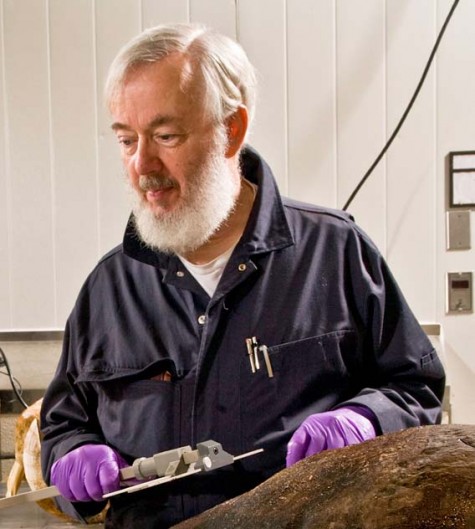 I am delighted to announce that the winner the 2015 Norris Award is James Mead. Jim is a truly worthy recipient of an award which was established in the name of the society’s founding president to acknowledge his exemplary lifetime contribution to science and society through research, teaching, and service in marine mammalogy.
I am delighted to announce that the winner the 2015 Norris Award is James Mead. Jim is a truly worthy recipient of an award which was established in the name of the society’s founding president to acknowledge his exemplary lifetime contribution to science and society through research, teaching, and service in marine mammalogy.
Jim is Curator Emeritus at the Smithsonian, a title bestowed upon him on his retirement in 2009. Jim was appointed curator of marine mammals at the Natural History Museum, Smithsonian Institution, in 1972 and it is from his work here, particularly on anatomy and ziphiids, that he is best known. Jim has published widely in science on cetacean biology, usually specimen – informed, as well as books for a more general audience, such as “Whales in Question”. His greatest work is the lexicon on the dolphin skull which took some 15 years of research and writing.
Jim first discovered an interest in natural history during his childhood in and around the Olympic Peninsula, Washington State, USA. As a school kid, he helped his dad to log trees, learned to drive a bulldozer and drove truckloads of logs to the mill. This early foray into logging convinced him to take up a different career and he subsequently won a place at Yale University, Connecticut, USA, with the intention of becoming a botanist. Jim, in fact, drifted into vertebrate paleontology and while conducting field work in Kenya came across a fossil in an ancient river strata which catalyzed his career long discourse in ziphiid anatomy. After Yale, Jim moved to Austin, Texas, to study for a masters on fossils where he also developed a proficiency with human anatomy. More significantly, Jim bought his Land Rover which still survives in Jim’s possession today! And, perhaps more importantly, he gained a room mate, his future wife, Becky Maglidt.
Following his masters, it was off to the University of Chicago, Illinois, to study for his PhD. By chance, Jim had an opportunity to dissect a dolphin and it was this event that set him on the path to his career in cetology. His PhD led to a major monograph on the anatomy of the dolphin head and he established the anatomical basis for echolocation. After his PhD, Jim worked in the Canadian Province of Newfoundland where he gained experience with large cetaceans. Jim was appointed as curator of marine mammals at the Smithsonian in 1972, at about the same time as Charley Potter who became long-term collection manager. Jim and Charley developed an active recovery program for cetaceans from USA eastern shores. Jim went so far as to learn to fly while working in Cape Hatteras, North Carolina, to increase their ability to spot strandings. The recovered specimens were prepared in a necropsy lab located in the centre of one of the Museum’s courtyards. A pungent procedure that ensured all the staff knew when THAT work was under way! Jim and Charley worked hard to fill the gaps in the Smithsonian marine mammal collection which has resulted in the collection being the largest and most important in the world today.
Jim was not only an excellent and dedicated researcher, he also encouraged pre- and post-docs to visit and work with the Marine Mammal Program and thus he launched many young cetologists on their careers. His office was a clearing-house for cetology, a place to meet colleagues and to admire Jim’s library. Visits to Jim’s office were excellent social occasions and provided the motivation to eat out at a new place or look at a new exhibition. Likewise, Jim’s house in Arlington, commonly known as the “the Happiness Hotel”, has been a meeting place and both short and long-term home for interns, fellowship students and diverse cetological vagrants.
As a recipient of the Norris Award, Jim has been invited to give a plenary lecture at the Society for Marine Mammalogy Biennial Conference between December 13-18, 2015 and to write an associated paper for Marine Mammal Science.
Acknowledgements go to Ewan Fordyce for his insights and contributions in providing us with this history
Childcare at SMM 2015
Childcare will be available at the SMM 2015 Biennial Conference. You can find out more about conference childcare options and register here.
SMM 2015 Conference workshop sign ups are now open
The descriptions of workshops to be held during the weekend just prior to the upcoming biennial (Dec. 12-13, 2015) are now posted on the SMM website. Most of the workshops are being held at the conference venue, the Hilton San Francisco Union Square. A few of the workshops are being held offsite, and their location is noted in the workshop description.
Please use the following link, to see workshop descriptions: https://www.marinemammalscience.org/conference/workshops/
Most workshops cost $50 for a half-day workshop and $80 for a full day workshop for early registration (before Sept. 15, 2015). Beginning Sept. 16, 2015 fees will increase to U.S. $60 for a half-day workshop and $90 for a full-day workshop.
You must be registered for the conference in order to sign up for and attend a conference workshop. Sign up for workshops on page 6 of the conference registration page. (If you created a user ID to submit or score abstracts or register for the conference, use the same login, scroll to page 6 on the registration page to sign up and pay. If you haven’t set up a user ID yet, you will need to do so in order to sign up for a workshop and hold your spot.)
Questions? See more information about workshops at workshops FAQ.
Contact information for workshop leaders is listed next to their names next to the workshop descriptions.
More general workshop questions should be directed to: workshops@marinemammalscience.org
Frank
RSVP for Seal Clubbing II: Beachmaster’s Ball and Support Student Travel
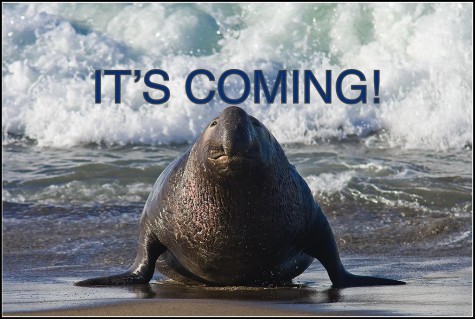 The Biennial Conference is shaping up to one of the best ever and that includes the can’t miss Student Travel Fundraiser!! Details are slowly emerging about Seal Clubbing II: Beachmaster’s Ball! Head to this page and the official FB page to RSVP and stay up to date on party planning! Visit (and like) the party’s official page below for more info!
The Biennial Conference is shaping up to one of the best ever and that includes the can’t miss Student Travel Fundraiser!! Details are slowly emerging about Seal Clubbing II: Beachmaster’s Ball! Head to this page and the official FB page to RSVP and stay up to date on party planning! Visit (and like) the party’s official page below for more info!
